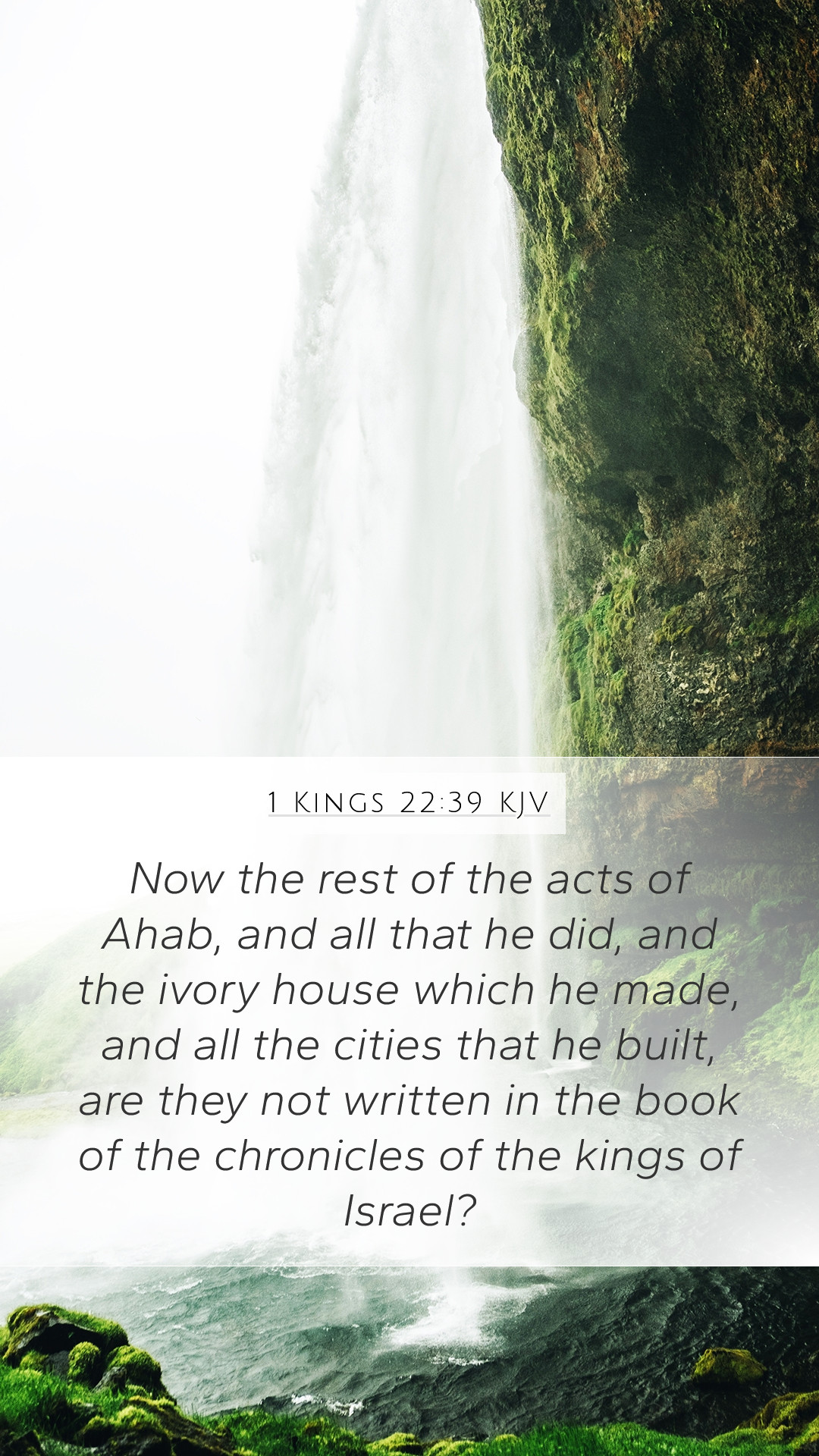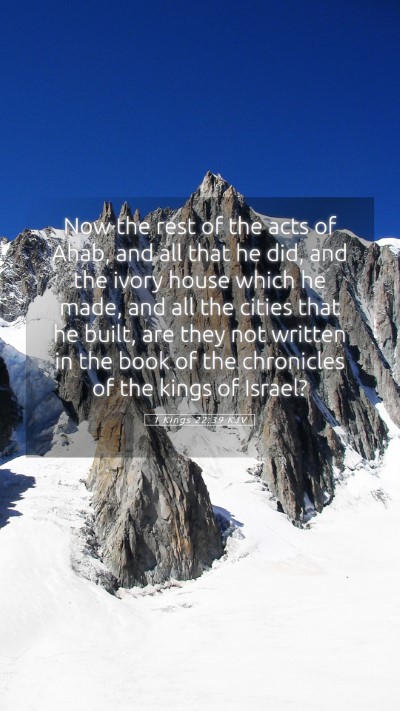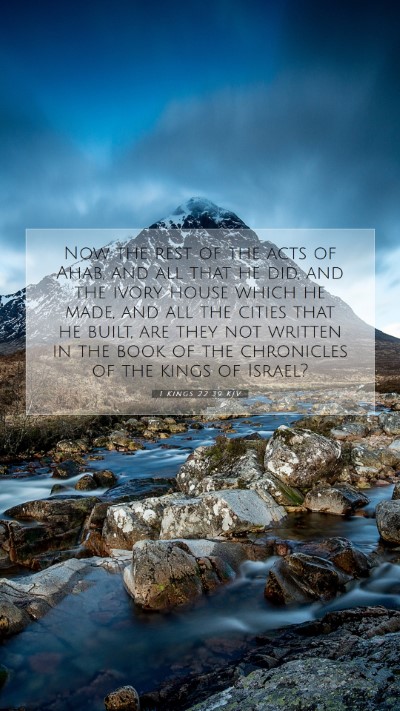Bible Verse Meaning: 1 Kings 22:39
Verse: "Now the rest of the acts of Jehoshaphat, and his might that he shewed, and how he warred, are they not written in the book of the chronicles of the kings of Judah?"
This verse serves as a concluding remark regarding King Jehoshaphat’s reign and provides context for understanding his significant actions and legacy as depicted in biblical texts. It encourages readers to explore historical records about the monarch, which provides insight into the broader narrative of Judah's kings.
Insights from Public Domain Commentaries
Matthew Henry's Commentary
Matthew Henry emphasizes the importance of Jehoshaphat's achievements and military exploits, noting that his deeds are not entirely recorded in the verses, but rather in the "book of the chronicles of the kings of Judah." He highlights that this reference to the chronicles invites readers to delve deeper into the historical context of Jehoshaphat's reign, which was marked by a strong commitment to God, reforms, and military engagements. Moreover, Henry draws attention to the idea that God's favor upon Jehoshaphat is linked with his righteous actions, ultimately bringing peace and stability to the kingdom.
Albert Barnes' Notes on the Bible
Albert Barnes underlines the significance of the phrase "his might that he shewed," interpreting it as a way to highlight God's empowerment of Jehoshaphat. He remarks on the chronicler's role in emphasizing the righteous acts and military successes of the king, which might serve as an encouragement for future generations. Barnes also mentions that the chroniclers intended to document the faithfulness of leaders, thus promoting the value of piety and adherence to God's will in leadership.
Adam Clarke's Commentary
Adam Clarke reflects on the historical perspective of this verse by providing context about Jehoshaphat’s reign. He identifies the significance of the chronicles as they contain crucial details that bolster the understanding of Israel’s history. Clarke stresses that the chroniclers aimed to document the faithfulness of the kings in their relationship with God, thus serving as a spiritual lesson for the inhabitants of Judah and Israel. He also points out that Jehoshaphat’s military prowess was complemented by his spiritual integrity and commitment to religious reforms.
Understanding Scripture and Its Application
This verse highlights the themes of leadership, faithfulness, and the importance of historical context in the interpretation of Scripture. The chroniclers' accounts enhance our understanding of Scripture by providing background that deepens our insight into the lives of its principal characters, such as King Jehoshaphat.
Application to Daily Life
- Leadership: This verse reminds leaders today about the importance of documenting their deeds and holding themselves accountable to God’s standards.
- Faithfulness: Just as Jehoshaphat was recognized for his dedication, so too should individuals strive for integrity in their own journeys of faith.
- Historical Awareness: Engaging with biblical chronicles fosters a richer understanding of God’s work throughout history, encouraging deeper study and reflection.
Cross References
- 2 Chronicles 20:31-37 - Jehoshaphat's reign and his reforms.
- 1 Kings 15:24 - The legacy of Jehoshaphat as a king who followed his father’s ways.
- 2 Chronicles 19:4-11 - Jehoshaphat’s judicial reforms and duties.
Conclusion
In summary, 1 Kings 22:39 serves as more than just a historical note; it prompts believers to reflect on the lasting impact of righteous leadership and the importance of preserving records of God's faithfulness. Through Bible study insights and thorough Bible verse interpretations, we can glean valuable lessons that inform our faith and practices today, shedding light on the enduring significance of Jehoshaphat's story.


